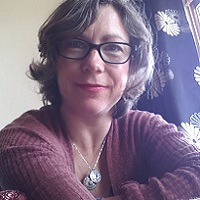Author’s note: When this recent article was shared on social media, there were many comments from women who related. However, there was the odd comment (mostly from men) that the message came across as “needy.” I have revisited the article and to the extent that the misinterpretation of my message was down to my own miscommunication, I’d like to set the record straight. Hopefully, this is clearer.
There is a difference between fixing and healing.
I dislike the term “fix” when applied to people. To fix is to repair or to mend. To heal, on the other hand, is to make healthy, whole, or sound; to restore to health.
And while none of us need fixing, all of us need healing.
Healing, in my view, is coming to terms with whatever experiences have scarred us in the past, recognising when they are being scratched in the present and choosing to not allow them sabotage whatever good we have going on right now.
Not everyone, however, recognises what healing they need. And fewer have the courage to admit it to others. Social conditioning has us all putting our best face forward and doing our utmost to conceal our weaknesses. We are expected to be independent and self-reliant and many of us find it difficult to ask for support.
We are reluctant to appear “needy.”
But there is a difference between “being needy”—in the negative context—and having needs.
We all have needs and it is actually healthy to be able to recognise and state what these needs are. When we can’t, we run into trouble—taking on too much work, not looking after our own health properly, putting the needs of others before our own and then running out of steam.
In the context of relationships it is important to know what traits we need a potential partner to have. Of course, knowing this stems from knowing ourselves firstly—being clear on what healing we need. When we’re clear on this, we are in a position to honestly communicate what we can bring to the relationship and what we need the other to bring in return.
For relationships are fertile grounds for healing—or so I’m told. And I’m willing to discover this for myself. As part of that journey, I’ve become clear on what I need from a partner. And I’d like any man I enter into a relationship with to be equally upfront with me.
I want to know what his needs are so I can be honest—with both of us—about my ability to meet them.
When we fail to clearly and honestly communicate our needs to one another, we do ourselves and our partners a great disservice. Then we start to expect our partners to be mind-readers and resent them when they aren’t divinely inspired to know what we might need to feel loved and supported in a given situation. I don’t know about anyone else, but this certainly hasn’t worked out very well for me in the past.
So, to be clear, I am not looking for a man to fix me. And I do not need a man to live a happy and contented life. But, despite my trust issues around men, I would like a partner to share my life.
I would like to overcome my fears. And to maintain a loving relationship—while I do my own healing—I need the support of a patient and understanding man.
If I am going to make a long-term relationship work, I need a man who can see me and my fears—and not run. A man who will stand by my side while I learn, bit by bit, to let go of everything that has held me back in the past.
And I also want a man who will allow me to do the same for him, because he is going to have his own stuff to heal. We all do. Life is a journey of healing.
I know there are some male readers who are frustrated because they have been Mr. Supportive and they ended up getting their hearts broken. I got an email from one guy asking for my advice—who am I to give anyone relationship advice? But I did say this, as I believe it to be absolute truth: there is a difference between someone who is aware of their fears—and willing to work through them—and somebody who has either no such awareness, or no such desire.
If you are in a relationship with someone who won’t acknowledge their fears, or is unwilling to work through them, then you’re going to be frustrated. It’s important to know where people are at on their journeys, so we can make a conscious decision around our suitability as partners.
Some people choose to live in denial all their lives. And some choose to live in fear.
I don’t. I choose to overcome my fears. But I cannot overcome my men/relationship fears on my own—I can only do that within the context of a loving relationship. And I’m very clear on what kind of man I need for that.
Relephant:
What I Need Before I Can Love You.
~
Author: Hilda Carroll
Editor: Travis May
Photo via Flickr/David J







Read 0 comments and reply